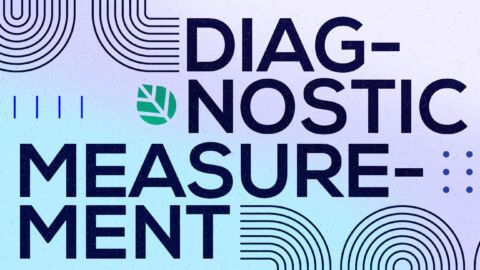André is an interdisciplinary scholar, practitioner, and teacher who has dedicated his professional career to translating complex scientific findings in educational measurement and related fields into frameworks, guidelines, and other learning resources for applied colleagues. He has experience in academia, industry, and the K-12 sector. Specifically, he worked over 10 years in academic institutions in Canada, Germany, and the United States - including as a tenured associate professor - followed by over 6 years in the professional testing industry and more than a year at a charter school network in NYC.
André is interested in helping clients articulate, navigate, and document conceptual design decisions and associated validity arguments for balanced assessment systems with a particular emphasis on innovative assessment components. Owing to his experience as a teacher of graduate and undergraduate students from various disciplines he also enjoys tremendously professional development efforts around measurement and assessment issues that empower practitioners to change their mindsets and practices. He recently completed a six-year appointment as the lead developer / editor for the ITEMS professional development portal by NCME, for which he has curated, developed, and produced open-source digital training modules in educational measurement and assessment with established professionals in the field.
André has published different types of research across professional genres in peer-reviewed journals in the field, which includes thoughtful editorial work for books and special issues. His most comprehensive professional resources include the Handbook of Automated Scoring for Routledge / CRC Press with Duanli Yan and Peter Foltz (2020), the Handbook of Cognition and Assessment for Wiley-Blackwell with Jackie Leighton (2016), and the book Diagnostic Measurement for Guilford Press with Jonathan Templin and Bob Henson (2010). He has received awards for the two latter volumes from AERA Division D and the SIG Cognition and Assessment.
Representative Publications
Part 1 – Edited Volumes
Yan, D., Rupp, A. A., & Foltz, P. (Eds.). (2020). The handbook of automated scoring: Theory into practice. New York, NY: CRC Press. [paid access]
Rupp, A. A., & Leighton, J. P. (Eds.). (2016). The handbook of cognition and assessment: Frameworks, methodologies, and applications. Hoboken, NJ: Wiley-Blackwell. [paid access]
Rupp, A. A., Templin, J., & Henson, R. J. (2010). Diagnostic measurement: Theory, methods, and applications. New York: Guilford Press. [free as of October 2021]
Rupp, A. A., Nugent, R., & Nelson, B. (Eds.). (2012). Diagnostic measurement in complex learning environments using evidence-centered design: Snapshots of the current state-of-the-art. Journal of Educational Data Mining.
Part 2 - Articles
Rotou, O., & Rupp, A. A. (2020). Evaluations of automated scoring systems in practice (Research Report No. 20-10). Princeton, NJ: Educational Testing Service. [free]
Rupp, A. A., Casabianca, J. M., Kruger, M., Keller, S., & Koller, O. (2019). Automated essay scoring at scale: A case study in Switzerland and Germany (RR-19-12). Princeton, NJ: Educational Testing Service. [free]
Rupp, A. A. (2018). Designing, evaluating, and deploying automated scoring systems with validity in mind: Methodological design decisions. Applied Measurement in Education, 31(3), 181-214. [paid access]
Elliot, N., Rupp, A. A., & Williamson, D. M. (2015). Three interpretative frameworks: Assessment of English language arts-writing in the Common Core State Standards initiative. The Journal of Writing Assessment, 8. [free]
Rupp, A. A. (2013). A critical review of the methodology of person fit research in item response theory: Lessons about generalizability of inferences from the design of simulation studies. Psychological Test and Assessment Modeling, 55, 3-38. [free]
Rupp, A. A., diCerbo, K. E., Levy, R., Benson, M., Sweet, S., Crawford, A., Fay, D., Kunze, K. L., Calico, T., & Behrens, J. (2012). Putting ECD into practice: The interplay of theory and data in evidence models within a digital learning environment. Journal of Educational Data Mining, 4, 49-110. [free]

















